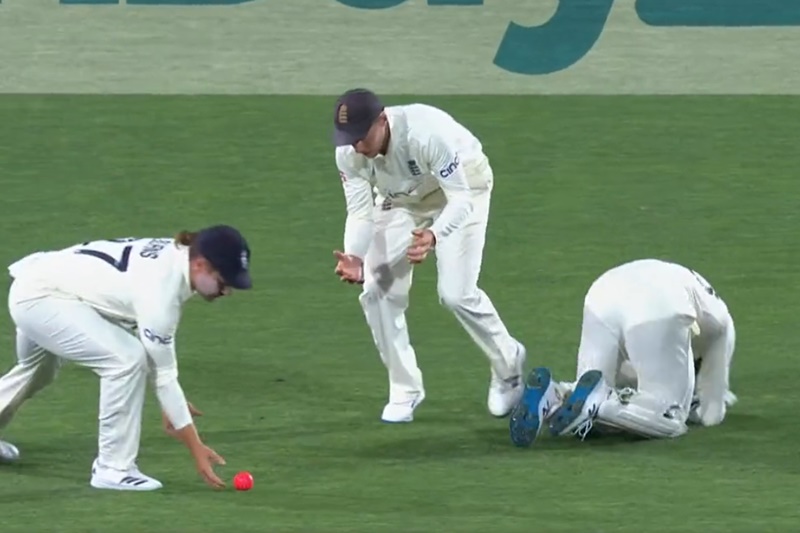If there is one great thing the pandemic may have achieved for cricket, it is making the international game completely and utterly unsustainable.
“You are burnt out from the start,” said Paul Collingwood this week, in reference to England’s ill-fated Ashes tour hot on the heels of the T20 World Cup.
“I am sure people are sick to death of hearing about bubbles, but the harsh reality of what we were expected to do was: two years of bubbles, finish the home season and then go to a World Cup where, for six weeks the bubble was even tighter, then do two weeks quarantine and go into the Ashes with two days of on-field practice. We were sitting ducks. We really were.”
Collingwood reckons that even if England had been able to take their best cricketers from the last 100 years, subjected to the bubble environment and allowed the same preparation, those players still wouldn’t have had a chance.
“Yes, we made mistakes, 100 per cent,” he said. “We made selection mistakes, we made toss mistakes – but the fact we actually turned up and agreed to a five-match Ashes series, the guys should be given medals for that. It would’ve been much better if we’d done two matches and then three next year. That would’ve been a great compromise.
“But no, Australia weren’t bothered that they were going to receive an England team who were mentally fatigued. They just wanted to get the product out there. They just wanted the Ashes.
“These guys deserve medals, not criticism. They should be told ‘well done’ for even going. It’s the equivalent of the England football team being asked to go to a World Cup, then from that bubble into the Euros. Would you expect a performance from that scenario? It’s ludicrous.”

Collingwood is no doubt currently attracting criticism for these comments from the ‘toughen up, playing a game for a living, would love to be in their position,’ crowd. These are not serious people. These people’s expectations for elite performance are matched only by their complete lack of comprehension for what that requires.
Paul Collingwood, however – he knows. Paul Collingwood won three Ashes series, including one in Australia, and also a T20 World Cup as captain. He knows what these things demand of a player.
“Resilience is a major quality you need to have when you go to Australia, and if your resilience is removed because of the conditions you’ve been in, that has an effect,” he explained. “If people are expecting top performances from your best players, and your best players are playing all the time, it’s unrealistic. You just can’t do that.”
It’s easy to read Collingwood’s comments as being purely about bubble life, but these current restrictions are really just the final tiny wafer-thin mint. Bubbles have been inserted into a schedule where players were already hopping from one major engagement to the next, living their lives in hotels, surrounded by cricket, never having the time to prepare as they needed to for a big series or tournament.
Collingwood describes the suffocating feeling of matches where the team has had to stay at the ground. (Sleeping at the office, basically.) “You wake up, look out the window and there is the pitch,” he said. “You cannot get away from it, can’t get out.”
It sounds awful, but the point here is that this is not really so wildly different to how England cricketers’ lives were for a good few years before that. The big engagements have been coming thicker and faster and each one brings increased stress levels long before it actually takes place. Even where a player gets some sort of physical rest in between, the mental stresses often remain.

As Jonathan Trott said about his downtime between Australia’s 2013 Ashes tour and the 2013/14 return series: “The three weeks in between wasn’t time off because I was working hard in the nets.”
And obviously that second series famously panned out brilliantly for Trott.
The pandemic has turned what was already an unsustainable schedule into one that is completely and utterly unsustainable. And really, that’s a good thing, because now people who can influence things might actually acknowledge there’s a problem.
Well said, that man
England players and staff largely tend to toe the line when asked about the schedule, but here’s Collingwood throwing around terms like “ludicrous,” “sitting ducks” and “burnt out from the start.”
The real killer, of course, is this one: “They just wanted to get the product out there. They just wanted the Ashes.”
We don’t expect any kind of major overhaul from the administrators off the back of this. We’re not naive. But maybe it’s not too ridiculous to expect some sort of rising awareness and perhaps even a moderate tempering of what is expected of the players.
Because after pointing to the premature retirements of South Africa’s Quinton de Kock and Chris Morris, Collingwood highlights the dangers.
“Take someone like Chris Woakes. The most loveable and down-to-earth guy. I have seen him in some serious mental states. We have seen Ben Stokes, someone we consider to be the most mentally tough cricketer in the world, been hit by this. I just hope there are no ramifications moving forward because when they come, they won’t be obvious next week or the week after. These are things that might come out down the line. That’s what scares me.”
> The Realm’s England XI: 5. Paul Collingwood
Sign up for our email, back us on Patreon – or do neither.



I think it is easy to come to the conclusion that too many games are being played, it is far harder to actually come up with a solution. I know that most people commentating on the matter aren’t paid to solve the problem but the fact that no one ever seems to suggest what cricket should be removed is telling. I may be ignoring a very obvious example but whilst you have raised the issue in a number of articles, KC, I don’t think you’ve ever proposed a solution. If you have I would be very interested to read it. There is value in raising the issue and keeping it in the discourse around English cricket but there must be some way forward?
The English calendar exacerbates the issues for the ECB as there is no natural “off-season” for the international players. The current funding model for international cricket, with home teams keeping the revenue, is also a huge issue and that is an area where the ECB do have to take some blame.
If the ECB don’t do anything then the current unsustainable status quo continues, if they cut the games against the smaller nations then they are accused of depriving those nations of valuable revenue (see last year’s cancelled Pakistan tour) and cutting the Ashes or making it less frequent would be met with a huge uproar. Cutting games against India would lead to condemnation from the largest fanbase in the world and upset the richest board in the world. With the World Test Championship and ICC World Cup Super League there is a minimum number of fixtures we have to fulfil in any event. We could cut out all T20I matches but I am not sure that would make a huge difference considering that only Sam Billings of the current squad in the West Indies played in the Ashes (and that wasn’t a planned appearance) and that a five match series can be played in the time that one test match takes.
Having said all of this, Australia have apparently decided to stop playing away test matches and gotten away without too much criticism so maybe just stopping playing is a viable strategy!
You do get the impression that for a very long time now that English cricket has been suffering from a number of issues but that it has been felt that the risk of upsetting too many people has been too great to properly fix any single issue. It may well be that in the future we look back on this winter as the time when it became apparent that some eggs were going to have to be broken to make the omelette. Alternatively we could continue papering over cracks and coming up with half baked ideas that don’t fully solve the issues they are meant to but do exacerbate others.
It would be great if there weren’t an ICC tournament every single year. And if there does have to be an ICC tournament every year (which is what’s planned) then that devalues bilateral limited overs series. There are definitely some of those that could go.
This year England have white ball series scheduled against West Indies, India, South Africa, Pakistan and Australia before we get to the World T20. Teams of course need fixtures in the run-in to a major competition, but then they did also play a World T20 a couple of months ago, so we can’t see that all of those series are vital.
Boards and broadcasters always want MORE of course, but there comes a point where you’re not really providing what was promised. This is what Collingwood is saying and this is what people have to start accepting. Once people of influence start to concede that a B-team-fuelled fulfilment of contractual obligations isn’t a worthwhile enterprise, things might improve.
The audience/consumer/customer/fan drives all this really. This is why comments like Collingwood’s delight us – because they erode public confidence. Hurray!
I would happily see the end of the seemingly annual 5 match ODI series against Australia or India, on that we can definitely agree.
The rest of your proposals though seem to gloss over the huge difference in finances between various cricket boards. The aforementioned Australia and India series are examples of board greed, I’m not sure tours to other countries can be seen in the same way. I may be wrong but as far as I understand it, the vast majority of income earned from a bilateral series goes to the host board. The current “B-team-fuelled fulfilment of contractual obligations” in the Caribbean right now isn’t actually benefiting the ECB much at all, other than helping to keep the WICB afloat and able to send teams to the UK in the future. Incidentally the series is proving a far better sporting contest than the MAshes proved to be.
It’s a similar story with the annual ICC events, the smaller nations are keen for the events as it is a way of providing them with needed revenue.
I can agree with your overall point but not think that the focus should be on financial reforms for the game as a whole, with England’s reduced fixture list as a benefit. England unilaterally deciding they aren’t going to play as many games is a bad thing probably resulting in even more games against India and Australia as they run out of other alternatives.
The way the money is distributed is a key element. An overhaul would better protect the less wealthy nations but unfortunately Ged’s overfishing analogy would still apply.
Interesting reading the comments on the ‘Paul Collingwood has to go’ article. People demanding he gets dropped for an average of 42, alongside his bowling and fielding…
Im re-reading Mike Atherton’s autobiography at the moment*. On the premature dropping of Robin Smith from the Test team, he says it was because Smith’s average had fallen from the low 50s to the low 40s. What we wouldn’t give for that now. Or for a top order batter who could score 40. Just once.
* Imaginatively titled ‘Opening Up’. Better than Alec Stewart’s ‘Playing For Keeps’ or Graeme Swann’s ‘The Breaks Are Off’.
Nasser’s is Playing With Fire.
And Rob Key’s is ‘Oi, Key!’
I considered writing an autobiography covering my avocational career as a comedy writer, entitled “Pun Flew Over The Cuckoo’s Nest”. I didn’t consider it for too long.
As for Colly, I agree that he is to be commended for stating the bleeding obvious because the obvious seems to be such an inconvenient truth that no-one dares say it.
The problem is a familiar one matters of trying to apply sound stewardship to limited resources, e.g. over-fishing or excessive use of fossil fuels. Short term rewards/needs tend to trump longer-term stewardship concerns in decision-making even amongst stewards who recognise and understand the problems. blah blah The Price Of Fish blah blah.
What price Mo taking over as Test captain?
In other news…
…the Washes…
…I have woken up in time for the last hour of the test…
…shove it blah blah!
A gut-wrenching last over draw.
Wonderful test cricket.
I was following the OBO, seemed like it was quite something.
And now I really should go to sleep.
All those late nights and early mornings following the dull, dreary MAshes, and as soon as an exciting match comes along I sleep through the whole thing.
Oh Sam! Terrible timing. Have you slept it off yet?
Ironic, btw, that I am talking about a superb Women’s Ashes Test on a thread that bemoans the ludicrous amount of international cricket played by the men’s teams…
…because the women’s teams play too few matches – especially tests – even though the improved quality through the professionalisation of the women’s game makes test cricket very followable, watchable and discussion-worthy.
A moment of silence for Tim Bresnan.
(He’s retired. He hasn’t died.)